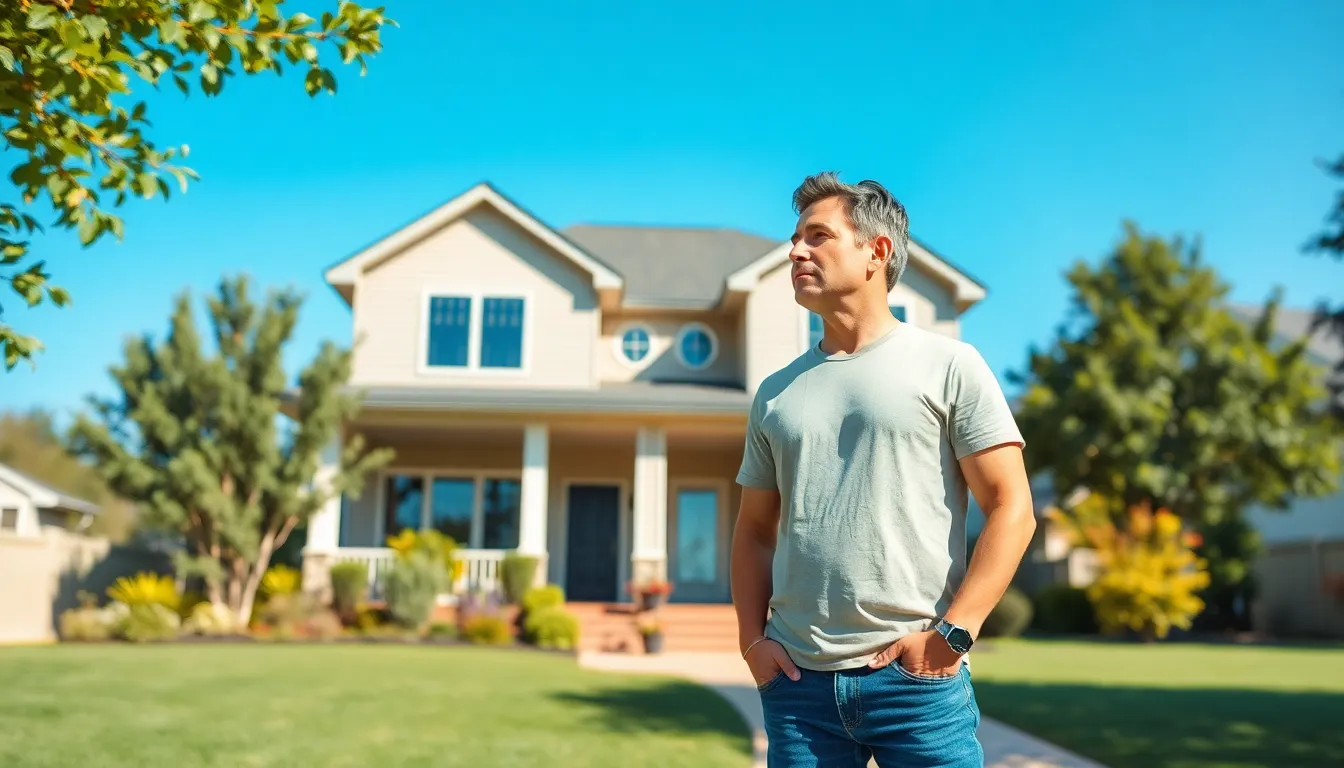In the heart of the Magnolia State, home insurance isn’t just a safety net; it’s your secret weapon against life’s curveballs. Whether it’s a surprise storm or a rogue raccoon trying to claim your attic as its own, having the right coverage can save homeowners from a world of headaches.
Table of Contents
ToggleUnderstanding Home Insurance Mississippi
Home insurance in Mississippi protects property owners from various risks, including damage from severe weather events and wildlife intrusions. This type of insurance is essential for safeguarding investments.
What Is Home Insurance?
Home insurance refers to a policy providing financial protection against damages to a home and its belongings. It covers various events, such as fire, theft, and natural disasters. This insurance typically includes liability protection, which covers injuries or property damage to others occurring on the insured property. Homeowners often customize their policies to fit specific needs and risks.
Importance of Home Insurance in Mississippi
Home insurance is vital for Mississippi homeowners due to the state’s susceptibility to extreme weather, including hurricanes and tornadoes. Coverage helps mitigate financial loss resulting from unforeseen events. Additionally, this insurance offers peace of mind by ensuring that both the property and its contents are protected. With a proper policy, homeowners can navigate potential challenges without facing overwhelming costs.
Key Coverage Options

Home insurance in Mississippi offers several coverage options essential for homeowners. Each option plays a significant role in providing comprehensive protection.
Dwelling Coverage
Dwelling coverage protects the home’s structure from various disasters. This includes damages caused by fire, storms, or falling trees. Coverage typically extends to attached structures, such as garages or decks. Policy limits should reflect the home’s replacement cost to ensure adequate financial protection. Homeowners often customize this coverage based on their specific needs and property assessments.
Personal Property Coverage
Personal property coverage safeguards belongings inside the home. Coverage encompasses items like furniture, electronics, and clothing. Theft and damage from events, such as fire or storm, fall under this protection. Homeowners should inventory possessions to determine appropriate coverage amounts. Additionally, special items, such as jewelry or art, may require additional coverage for complete protection.
Liability Coverage
Liability coverage protects homeowners against legal claims. This includes injuries that occur on their property or damages caused to others. Coverage amounts typically start at $100,000 but can be increased for added security. Assessing potential risks helps homeowners choose sufficient liability limits. Furthermore, legal fees and settlements are covered under this protection, reducing financial strain during disputes.
Factors Affecting Home Insurance Rates in Mississippi
Home insurance rates in Mississippi vary significantly based on a few key factors, influencing how much homeowners pay for coverage.
Location and Environment
Geographic location plays a critical role in determining insurance rates. Areas susceptible to extreme weather events, such as hurricanes and flooding, often face higher premiums. Proximity to bodies of water increases the risk of flooding, prompting insurers to adjust rates accordingly. Urban areas with higher crime rates may also see elevated costs due to the increased risk of theft and vandalism. Additionally, communities that implement effective disaster preparedness measures can reflect lower insurance rates, offering potential savings for homeowners.
Home Characteristics
Home characteristics considerably impact insurance costs. The age of a home affects premiums, as older structures might require more maintenance and are often less resilient against natural disasters. Construction materials also influence rates; homes built with fire-resistant materials generally attract lower premiums. Square footage, number of bedrooms, and overall value further determine coverage needs. Unique architectural features, like swimming pools or detached garages, might also warrant additional coverage, increasing insurance costs. Overall, assessing home characteristics helps homeowners understand their specific insurance needs more accurately.
Choosing the Right Home Insurance Provider
Selecting a home insurance provider requires careful consideration. Assessing various policies helps homeowners find the best fit for their needs.
Comparing Policies
Comparing policy options ensures adequate coverage. Homeowners should review specific features and benefits, such as coverage limits and deductibles. Look for tailored options that meet unique requirements, such as flood or windstorm coverage. Many providers offer add-ons to enhance basic plans. Costs also vary significantly based on coverage types and limits. Using online tools can streamline this process, allowing for side-by-side comparisons of different policies.
Reading Customer Reviews
Customer reviews provide valuable insights into an insurer’s reliability. Reading feedback from current and past policyholders reveals strengths and weaknesses. Look for comments regarding claims processes, customer service responsiveness, and overall satisfaction. High ratings usually indicate a trustworthy provider capable of meeting homeowner expectations. Negative reviews often highlight recurring issues, which could be red flags when selecting an insurance company. Checking third-party review sites enhances credibility, offering an unbiased perspective on insurer performance.
Home insurance in Mississippi is more than just a safety net; it’s a vital investment for homeowners. With the state’s unique challenges, having the right coverage can make all the difference when facing unexpected events. It not only protects the home and belongings but also offers peace of mind against potential liabilities.
Choosing the right policy involves understanding individual needs and comparing options. By taking the time to assess coverage levels and provider reliability, homeowners can ensure they’re adequately protected. This proactive approach to home insurance helps navigate the uncertainties of homeownership while safeguarding financial stability.

